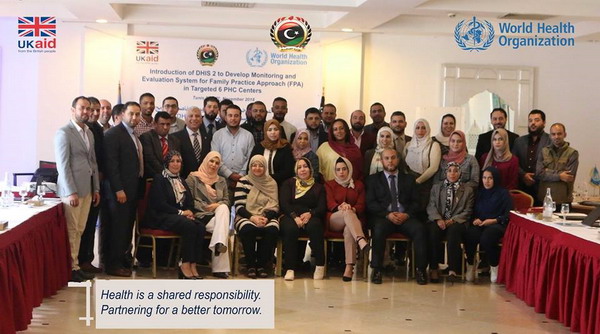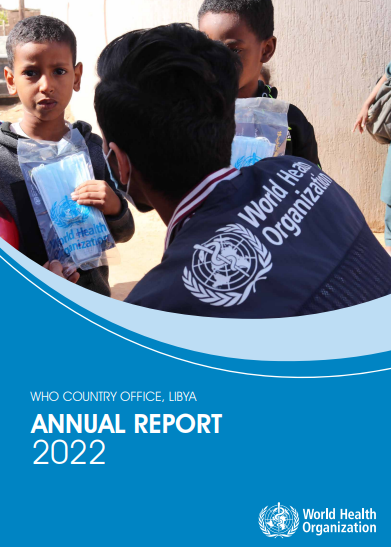 5 November 2018 – WHO in collaboration with Ministry of Health (MOH), Libya has organized a four-day training workshop from 3 to 6 November 2018 in Tunis on the introduction of District Health Information System (DHIS) 2 in six selected primary health care facilities of Hay El-Andalus, Janzour, Sabha, Edri, Tobruk and El-Bayda municipalities. Strengthening of health information has pivotal role in health sector and it is globally recognized as eminent constituent of family health practices approach.
5 November 2018 – WHO in collaboration with Ministry of Health (MOH), Libya has organized a four-day training workshop from 3 to 6 November 2018 in Tunis on the introduction of District Health Information System (DHIS) 2 in six selected primary health care facilities of Hay El-Andalus, Janzour, Sabha, Edri, Tobruk and El-Bayda municipalities. Strengthening of health information has pivotal role in health sector and it is globally recognized as eminent constituent of family health practices approach.
The tool generated data will directly validate the priority health needs to the advisory executive committee at central bank. This committee is a key decision-making body that requires evidence-based statistics in order to take decision while allocating funds in the monetary policies of the country. In the past, lack of data statistics was main reason of setting low health priorities in monetary and fiscal policies in annual budgets.
Under the auspices of DFID funded project “Improving access to PHC services in Libya”, the training is targeting 35 participants that are representing senior management, statisticians and public health workers. These officials will implement the robust monitoring and evaluation system, DHIS2 in their respective areas. The cascade of such trainings will be replicated by other health facilities in the country.
Globally, some 60 developing countries have successfully adopted DHIS2 platform. “The implementation of District Health Information System is a revolutionary step in Libyan health history. The platform confirms a dynamic picture of have and have not with its data validation and analysis. It fetches information from districts and feeds the central level. At one end it points out holistic situation analysis and on the other end, validates a strong argument for future planning and interventions. said Dr. Syed Jaffar Hussain, WHO Representative and Head of Mission in Libya. “The newest version DHIS2, was adapted by MOH in Libya in collaboration with WHO Country and Regional Office for Eastern Mediterranean in early 2018”. Further explained Syed. In addition, DHIS2 is used to monitor patient health, improve disease surveillance, map disease outbreaks and facilitate access of health staff to health information at national and sub-national level. It is at the same time a data bank repository as well as dynamic dashboard-based presentation platform.
Notes
WHO is striving for the health needs of Libyan population that are facing ongoing conflict at one end and illegal migrant pressure on the other. The ongoing conflict in Libya has left behind a struggling and over-burdened healthcare system with a half a million population in health needs. Lack of preventive and curative health services for vulnerable people in Libya has amplified the risk of spread of communicable diseases, including HIV and tuberculosis. Large numbers of internally placed persons and migrants and a weakened surveillance system further aggravates the situation. Limited availability of health care programmes has also impacted reproductive, maternal, and newborn child health and immunization efforts. Indiscriminate attacks targeting health workers and health facilities, and the presence of explosive hazards – including landmines and improvised explosive devices – further limits access to the numbered health facilities and complicates the process of health delivery
About DHIS2: DHIS2 is a tool for collection, validation, analysis, and presentation of aggregate and patient-based statistical data, tailored (but not limited) to integrated health information management activities. It is a generic tool that allows the user to design the contents of a specific information system without the need for programming. DHIS2 is developed by the Health Information Systems Programme (HISP) as an open and globally distributed process with developers currently in India, Vietnam, Tanzania, Ireland, and Norway. The development is coordinated by the University of Oslo with support from NORAD and other donors. For detailed information please visit the DHIS website.





 Libya country office annual report, 2022
Libya country office annual report, 2022
